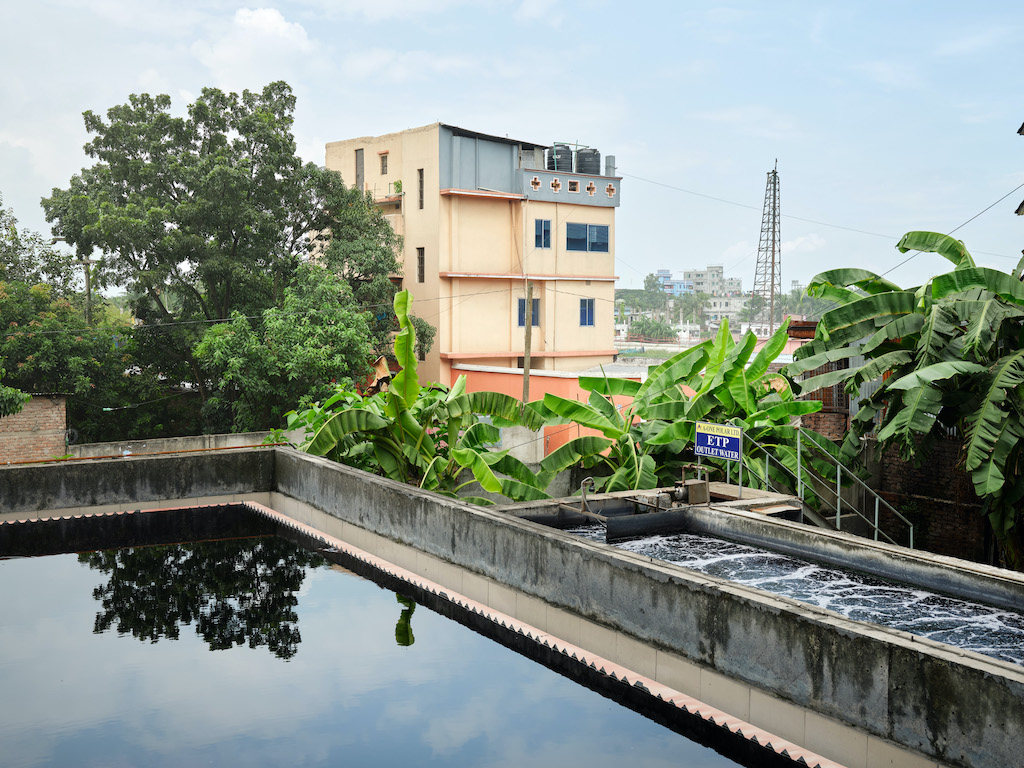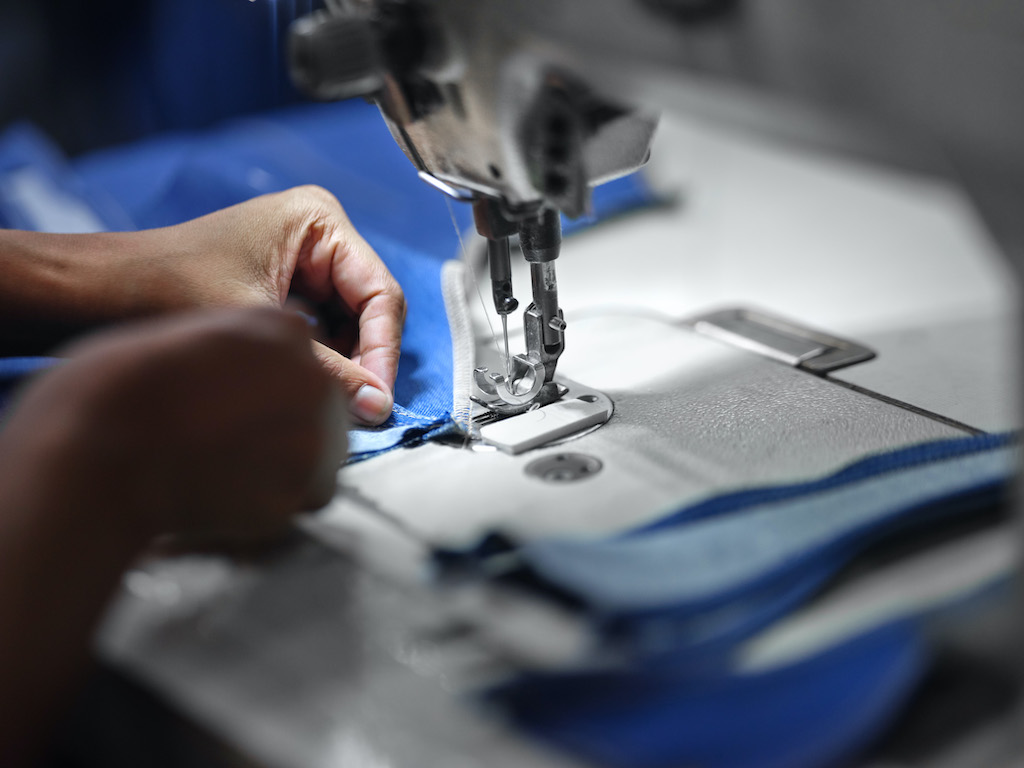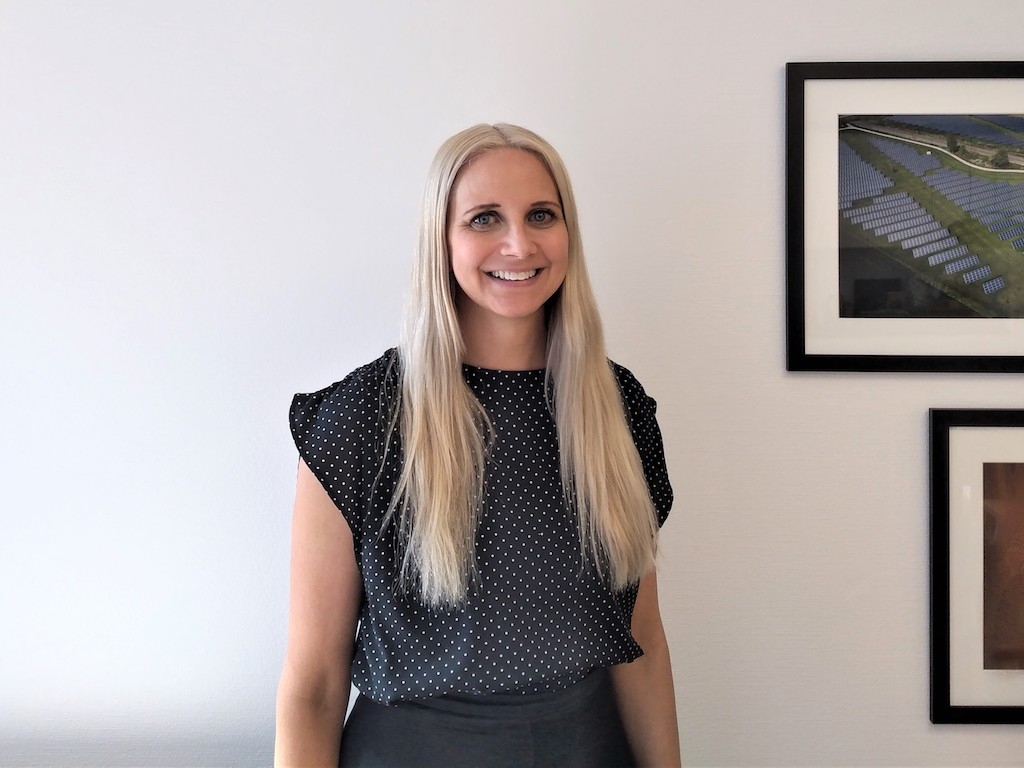9 Mins Read
H&M Group, one of the world’s largest fashion retailers has just launched a new sustainable fashion B2B service platform called Treadler. We recently had the chance to speak to Hanna Hallin, Treadler’s new global sustainability manager, an apparel and responsible sourcing industry veteran who has under her belt more than 6 years at H&M Group plus stints at research think tank Sektor3 and Fairtrade Sweden. In this interview, Hanna shares her expertise about the changing world of fashion, her journey to make a positive impact, what Treadler aims to accomplish and more.
GQ: You’ve been with H&M a long time, most recently as Sustainability Manager for Hong Kong and China Retail Markets and then global strategy lead: transparency and stakeholder engagement. Why enter into this new role now? How did you end up at Treadler?
HH: Treadler is a new initiative by the H&M Group and is the first time the H&M Group has explored a B2B service. What I find quite exciting with the idea of Treadler is that it goes beyond in-house brands and takes a role to accelerate and scale sustainability across the industry. It’s about opening up supply chain services and sustainability investments that the H&M Group has done over the years, and making that available for other companies to use. It removes the initial barriers that many fashion and apparel brands are facing in terms of actively driving sustainability. It’s about future-proofing the fashion industry at its core and takes a larger perspective to drive industry-wide change. That was what was so exciting and intriguing to me.
I don’t think we should settle for less than a 100% circular and ethical supply chain.
Hanna Hallin, Global Sustainability Manager at Treadler
GQ: What exactly is Treadler, technically speaking? Is it a digital platform where brands can log in or more of an informal network of information sharing? How much access will other brands have? Is there any limit on what brands can get from Treadler? Can competitors like Zara use it?
HH: Yes, Treadler is open to collaborating with anyone in the industry. The key part is sharing values – we need to be committed and willing to collaborate. That is important. Treadler can support a client with full services from product development to design to sourcing and freight and logistics. At the core is really sourcing, to open up the H&M supply chain to other brands.
Companies can work with Treadler to place orders with more sustainable factories in our supply chain and also leverage the full catalogue of sustainability materials we have. It’s quite concrete what we offer our clients, and it really taps into all the other expertise and knowledge of the H&M Group.
GQ: There seems to be more momentum now on improving the sustainability in the materials stage, such as Google & WWF’s new partnership platform to assess raw materials and the Material Innovation Initiative. Is Treadler similar?
HH: You can say that Treadler, at our core, is about making it easier for others to find high-performing factories and to access sustainable materials that are hard to get at an affordable price. If you look at who is performing on sustainability in the Global Fashion Agenda’s Pulse report, major players such as H&M Group are higher performing than smaller and medium brands and other segments of the industry.
If we are to see real change, we need to see the whole industry move towards sustainability. That’s where we see too many barriers for so many companies to start their journey, so we want to help get them on board. Treadler represents a solution and it’s more hands-on than the Google and WWF partnership, which is more about [sharing] data availability.

GQ: Is an entirely eco fashion supply chain possible? What about 100% ethical? What about 100% circular?
HH: I do think we shouldn’t settle for less – we’re not done until we’re there. However, there are a lot of things going into the words you just mentioned and there are many ways to define these words too. I believe that we fundamentally need to transform the way we’re doing business in the fashion industry and we need to do it fast.
One of the reasons why progress has been slow isn’t because companies don’t want to do the right thing necessarily, it’s because it’s actually quite difficult and many apparel buyers lack the leverage to enroll a factory that’s in their supply chain into climate-neutral programs. It requires a lot of investment and that’s where we see the crucial missing piece – we need to be more transparent in our sharing in the industry, which is why H&M Group through Treadler opening up and making those suppliers that already have made these investments available to others to access.
We as an industry must make it easier for people to make these [ethical fashion] choices by eliminating the bad options.
Hanna Hallin, Global Sustainability Manager at Treadler
GQ: On a recent panel that Green Queen’s founder Sonalie Figuerias was moderating, your colleague Harsha Vardhan said that in the future the idea of food versus fibre will be a real choice for farmers because of crops insecurity due to climate change and what we have done to the planet. Will we need to make a tough choice between growing for food and growing for textiles?
HH: Yes. That’s pretty much the strategy we have for the H&M Group when we look at material sourcing and long-term responsible practices. We must be able to sustain the planet and the livelihood of people and we must expect that business-as-usual will not be the way we can do things the coming years. We need to change right now – preferably yesterday – but now.
GQ: Is the onus shifting from consumers making responsible decisions to corporations taking the lead to make real changes? Do you see brands and manufacturers really looking to create real, systemic supply chain change?
HH: I do think that is an important key. We definitely see an increased appetite from customers with a strong value shift towards sustainability. But it’s really hard as a customer to navigate what counts as a more sustainable sweater and what really is the right thing to do. That’s why at the same time, we as an industry must make it easier for people to make these choices by eliminating the bad options.
In some parts of the industry, this initiative is company-led, but there is really a push and pull effect that we can expect to increase. Customers will be scrutinising closer at how brands behave and that’s why you also need to address it for business reasons. We saw what happened the other week – there is a high financial risk if you don’t know your supply chain and the conditions in which your products are being made.
GQ: What do you make of the reports about cotton from Xinjiang being made using forced labour and many brands being complicit in this?
HH: I’m probably not the right person to comment on this. At the H&M Group, we do follow these issues very closely. I don’t think it’s intentional from anyone in the industry to be part of this. No one is allowing forced labour, and human rights are a minimum for everyone.
GQ: How has the coronavirus pandemic disrupted progress in terms of moving towards a more sustainable fashion industry, both from the consumer side and the brand side? Has it been a net positive or net negative? In what ways will the crisis change the landscape of fashion?
HH: In our perspective, it’s overall moving in a positive direction now. We definitely see that people’s values have shifted, people are looking for more meaningful connections and relations, including revisiting consumption and choice of products. So it’s been positive in terms of customer sentiment.
For the H&M Group, it’s definitely been an opportunity to leapfrog into where we need to be. We have had to take a closer look at how we can build ourselves back better and stronger towards a more circular way of doing fashion, so it’s been a lot of healthy conversations in terms of sustainability and our strong commitment. For the industry at large, it’s a devastating situation for people’s livelihoods, supply chains are disrupted, and we know people are suffering terribly from it. But we’re still in a good position to build back better as an industry.

GQ: If there was once piece of advice you could give to a young person who wants to make a difference for the planet, what would it be?
HH: I believe it’s about staying open-minded and curious and to really find the values or the question that you’re passionate about and follow it. It’s hard to be perfect in every decision you make in your life, but if we all find something we can feel makes a difference, it makes an impact for the bigger picture. Personally, it’s easy to become overwhelmed when you open your eyes to these questions, but every decision matters. That’s something to keep in mind for the long-term in order to advocate for change in the right direction.
I don’t think [more people should switch into sustainability], actually. I think the big shift lies in if we all do what we all do in a more sustainable way.
Hanna Hallin, Global Sustainability Manager at Treadler
GQ: You began your career working for Fairtrade Sweden. Recently the standard has been under attack, with reports that it doesn’t deliver the intended results and the labels may even be hiding human rights abuses – what are your thoughts on this?
HH: It’s been almost 15 years since I was involved in Fairtrade, and was also involved in the Clean Clothes Campaign at the same time as both a volunteer and trainer of trainers. I do see that those are two different strategies in terms of bringing change. One is to bring an option, such as a niche product or an alternative, which is what Fairtrade offers with its certification. The other is to improve the minimum level in the conventional products, to ask conventional brands to raise their standards, which is what Clean Clothes Campaign does. We need both approaches for change. The core of Fairtrade was about empowering people upstream in the supply chain, and there are some great and also not so great examples of how it has been implemented when scaled.
GQ: Should more people switch careers and look to get into sustainability?
HH: I don’t think so, actually. I think the big shift lies in if we all do what we all do in a more sustainable way. It’s better to stay where you are right now and see how you can introduce and find avenues for a more sustainable way of working.
GQ: What motivates your work?
HH: For me, it’s been about empowering people and to make them see they can be part of a solution. I’m intrigued by the opportunity to have your actions echoing across the world. A small thing here can echo and become part of a bigger shift somewhere else. That is what Treadler is about as well – by the simple action of opening up to others what the H&M Group has built up, that in itself can enable more companies to embark on that sustainability journey. It’s like when I was young and entered a room as an ambassador or trainer for ethical or sustainable consumption, and you start to share with others how they can make a real difference.
GQ: Final question – team rice or team noodles?
HH: Rice noodles!
Lead image courtesy of Hanna Hallin / H&M Treadler.




